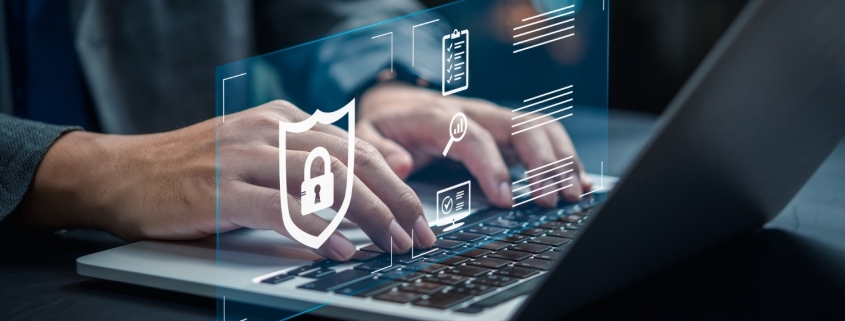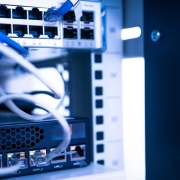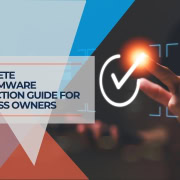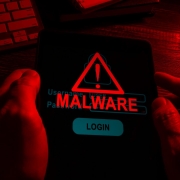Protecting Your Business Accounts: Guide on Account Security
Last Updated on August 23, 2023
Imagine starting your workday to find unauthorized transactions or discovering confidential business data leaked online. In an era where businesses increasingly rely on digital platforms, ensuring the security of online accounts is not just about safeguarding assets but also about preserving the company's reputation and trustworthiness.
Table of Contents
Definition of Hacked Accounts
A hacked account in the business realm is not just an inconvenience; it's a potential threat to company assets, reputation, and client trust. Unauthorized access or breaches into a company's online accounts can stem from various methods, including phishing scams, weak passwords, or malware attacks. Once inside, cybercriminals can misuse the account, steal sensitive business data, or even disrupt operations.
The Importance of Account Security
Imagine discovering that your company's proprietary data has been sold to competitors or that confidential client information has been exposed. The ramifications of a security breach can be far-reaching, affecting the company's bottom line and its standing in the industry. Protecting online accounts is crucial in preserving business integrity, ensuring uninterrupted operations, and maintaining client trust. In a world where data breaches are becoming increasingly common, businesses must prioritize cybersecurity.
Prevalence of Account Hacking in the Business World
The corporate digital landscape is vast, and with its growth comes an increase in cyber threats. Recent reports indicate that cyberattacks targeting businesses have surged, with small to medium enterprises often being the most vulnerable. The threat landscape is diverse and ever-evolving, from high-profile corporate data breaches to startups facing ransomware attacks. This rising trend underscores the urgent need for businesses to bolster their online defenses and stay abreast of the latest cybersecurity practices.

Prevention of Account Hacking for Businesses
Use of Strong and Unique Passwords
- Complexity is Essential: Business accounts must have robust passwords. A strong password typically includes uppercase and lowercase letters, numbers, and special characters. This complexity makes it harder for hackers to guess or crack passwords using brute force methods.
- Avoid Generic Passwords: Businesses should steer clear of using easily guessable passwords. Examples like “company123” or “admin2023” are predictable and can be easily targeted by cybercriminals.
- Regular Rotation: Changing passwords periodically, especially for critical business accounts, reduces the risk of unauthorized access. If a password does get compromised, its utility is time-limited.
- Password Managers for Teams: Business-grade password managers can help organizations maintain strong, unique passwords across different accounts. These tools generate and store complex passwords, ensuring team members don't have to remember them reducing the risk of weak password usage.
Two-factor authentication (2FA)
- Enhanced Security: 2FA adds an extra layer of security. Even if a hacker obtains the password, they still need a second piece of information (like a code sent to a phone) to access the account. Implementing 2FA, especially on platforms that store sensitive data, is crucial.
- Employee Training: It's not enough to have 2FA; employees need to understand its importance. Regular training ensures that they know how to activate and use 2FA correctly.
Regular Account Monitoring
- Stay Alert: Enabling notifications for unusual activities can act as an early warning system. Especially for financial transactions and data access, immediate alerts can prevent potential breaches.
- Routine Checks: It's a good practice for businesses to set aside monthly time to review account logs. This proactive approach ensures that any unauthorized access is detected and addressed promptly.
Secure Business Email Accounts
- Distinct Passwords: Business email accounts often become targets because they can be gateways to other sensitive information. Ensuring that email passwords are distinct from other business account passwords is essential.
- Stay Vigilant: Phishing is a standard method attackers use to gain unauthorized access. Employees should be trained to recognize and promptly report suspicious emails.
Avoid Phishing Scams
- Employee Awareness: Regular workshops can update employees on the latest phishing techniques. An informed employee is less likely to fall for a phishing attempt.
- Advanced Email Filters: Implementing advanced email filters can automatically block potential phishing emails, reducing the risk of them reaching an employee's inbox.
To further emphasize the importance of these measures, consider the numerous data breaches that have occurred in recent times. For instance, companies like Yahoo, LinkedIn, and Facebook have faced massive data breaches affecting millions of users. These incidents underscore businesses' need to prioritize cybersecurity and adopt the best practices mentioned above. Source
Recovery of Hacked Business Accounts
Immediate Actions to Take
Isolate the Issue: When a security breach is detected, it's crucial to identify and isolate the compromised system or account immediately. This prevents the attacker from accessing other parts of the business infrastructure. For instance, if a particular computer is infected with malware, it should be disconnected from the network to prevent it from spreading.
Notify Stakeholders: Transparency is key during a security incident. Businesses should promptly inform all relevant parties, including employees, partners, and clients, about the breach. If there's a possibility that their data might be compromised, they should be made aware so they can take protective measures on their end.
Contacting the Service Provider
Seek Assistance: If the breach involves third-party platforms or services (like cloud providers or software-as-a-service applications), contacting their support teams without delay is essential. These providers often have specialized teams and resources to address security incidents and can guide on mitigating the breach.
Adhere to Protocols: Many service providers have established recovery protocols for security incidents. Following these protocols can expedite recovery and ensure all necessary steps are taken to secure the account.
Changing Passwords
Prompt Updates: Changing passwords is one of the first lines of defense after a breach. All affected accounts should have their passwords updated immediately to prevent unauthorized access using old credentials.
Inform the Team: Communication is vital during a security incident. All relevant team members should be informed about the password changes to prevent confusion and ensure everyone is on the same page.
Review Account Settings and Activity
Audit and Action: Regularly reviewing account logs can help businesses identify unauthorized changes or access. Any unfamiliar or unnecessary permissions should be revoked, and settings should be adjusted to enhance security.
Legal Recourse
Legal Consultation: Businesses should consult with their legal team if sensitive data is compromised during a breach. This is to understand potential liabilities and determine the best action moving forward.
Report to Authorities: In severe breaches, especially those involving criminal activity, reporting the incident to relevant authorities is essential. This can aid in the investigation and potentially prevent future attacks.
Conclusion
As businesses of all sizes become more interconnected and reliant on online platforms, the potential risks associated with cyber threats have grown exponentially. From safeguarding sensitive data to ensuring uninterrupted operations, a robust cybersecurity strategy is the bedrock upon which modern businesses thrive. In conclusion, as we navigate this technologically advanced era, businesses must stay vigilant, proactive, and informed. Embracing cybersecurity is not just about preventing potential threats; it's about fostering a culture of trust, responsibility, and resilience. By prioritizing cybersecurity, businesses protect their assets and pave the way for a safer digital future.
FAQ
What is a hacked business account?
A hacked business account refers to unauthorized access or breaches into a company's online accounts. This can result from various methods, including phishing scams, weak passwords, or malware attacks. Once compromised, cybercriminals can misuse the account, steal sensitive business data, or disrupt operations.
Why is account security crucial for businesses?
Account security is vital for preserving business integrity, ensuring uninterrupted operations, and maintaining client trust. In a world where data breaches are becoming increasingly common, businesses must prioritize cybersecurity to safeguard their assets and reputation.
How can businesses prevent account hacking?
Businesses can prevent account hacking by:
– Using strong and unique passwords.
– Implementing Two-Factor Authentication (2FA).
– Regularly monitoring accounts for unusual activities.
– Securing business email accounts.
– Training employees to recognize and avoid phishing scams.
What immediate actions should a business take if its account is hacked?
Upon detecting a security breach, businesses should:
– Isolate the compromised system or account.
– Notify all relevant stakeholders.
– Contact the service provider for assistance.
– Change passwords for all affected accounts.
– Review account settings and activity.
How often should businesses change their passwords?
It's recommended that businesses change passwords periodically, especially for critical accounts. Regular rotation reduces the risk of unauthorized access, ensuring that even if a password is compromised, its utility is time-limited.
What is Two-Factor Authentication (2FA), and why is it essential?
2FA is an extra layer of security that requires users to provide two pieces of information to access an account. Even if a hacker obtains the password, they still need a second piece of information, like a code sent to a phone, to access the account. It's crucial for enhancing account security, especially on platforms storing sensitive data.
How can businesses recognize phishing scams?
Businesses can recognize phishing scams by conducting regular workshops to update employees on the latest techniques. Implementing advanced email filters can also help block potential phishing emails.
What legal actions can businesses take after a security breach?
After a security breach, businesses should consult with their legal team to understand potential liabilities. In severe breaches involving criminal activity, reporting the incident to relevant authorities is essential.
How do data breaches affect a company reputation?
Data breaches can severely damage a company's reputation, leading to a loss of client trust and potential financial repercussions. Companies like Yahoo, LinkedIn, and Facebook have faced massive data breaches affecting millions of users, underscoring the need for businesses to prioritize cybersecurity.
How can businesses foster a culture of cybersecurity?
Businesses can foster a culture of cybersecurity by staying vigilant, proactive, and informed. Regular training, embracing the latest cybersecurity practices, and prioritizing cybersecurity measures are essential in building a secure digital environment.










Leave a Reply
Want to join the discussion?Feel free to contribute!